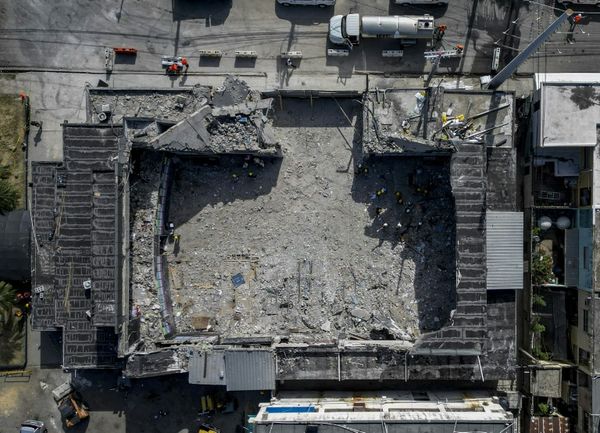
Dangerous levels of arsenic were found in a New York City Public Housing Authority (NYCHA) complex, leaving thousands of affected residents without safe tap water.
The crisis plays out as people in the predominantly Black city of Jackson, Mississippi, have gone without clean drinking water for more than a month, with residents using bottled water for everyday needs like cooking and brushing teeth.
Residents of New York City’s Jacob Riis Houses, one of the largest public housing complexes in the Manhattan borough, have not had safe drinking water for more than a week after arsenic levels above federal standards were found in the building’s water supply.
As of Monday, tenants were told to continue avoiding the building’s tap water as officials await additional test results, though most recent testing over the weekend found no arsenic in the complex’s water supply, NBC New York reported.
The NYCHA has been handing out bottled water to residents in the wake of the test results, but many have condemned the agency for failing to inform residents of the potentially contaminated water supply.
Tap water in the complex, which contains 19 buildings and has more than 3,700 residents, was first tested by NYCHA in August after several complaints from residents about cloudy, brown water.

But, as first reported by New York-based publication The City, residents were only informed of the arsenic contamination last Friday, despite officials knowing about the test results two weeks earlier.
“We don’t drink their water,” said Riis resident Malina Barbosa, who told CITY that tenants had not been told about the water issues. “It kind of smells. When they turn it off and it comes back on, it’s brown.”
Last Friday in the late evening, a NYCHA official informed The City that New York City mayor Eric Adams would be handing out bottled water to residents in the complex but would not be responding to press questions.
The NYCHA later that day confirmed to The City that water in the public housing complex had previously tested positive for arsenic, but those test results had reportedly only been confirmed that day.
A spokesperson for Adams also confirmed the positive test result in a subsequent statement to The City.
The mayor’s spokesperson wrote: “Preliminary results received today from retesting showed arsenic levels higher than the federal standard for drinking water, and while there is no evidence linking it to the cloudy water, the city has taken immediate action, including providing support and drinking water to every household at Riis while we conduct additional water testing.”
An investigation is being conducted on how the Riis complex’s water supply became contaminated in the first place, and the NYCHA has been instructed to keep all paper documents connected to the arsenic investigation, The City reported.
Exposure to arsenic has been linked to several types of cancer and lower IQ scores in children.
The NYCHA has previously faced intense scrutiny for its mishandling of past complaints, including rats, mold, and other blighted conditions.
The agency was under a US justice department investigation in 2016 about the health and safety of its building developments, including elevated lead levels in the blood of its residents, and it is currently under the oversight of a federal monitor.
The current issues in Jackson and with the NYCHA’s water system form of a larger infrastructure problem plaguing much of America’s drinking water infrastructure, particularly in marginalized communities.
“For the longest [time], I have been experiencing dirty water, and now we got to the point where we ain’t got no water,” 30-year-old Jackson resident Kendrick Hart recently told the Guardian.







